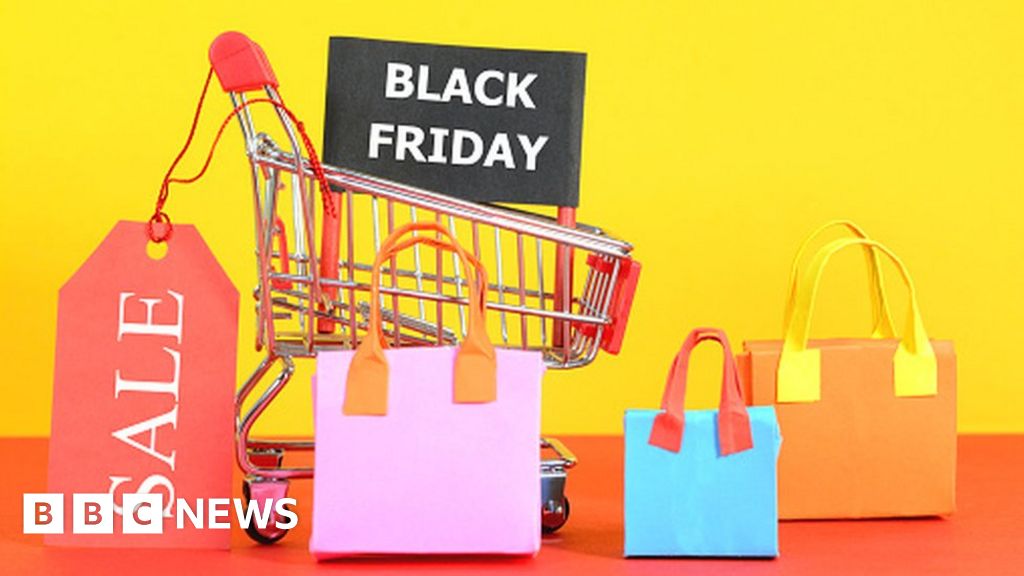
Let’s be honest, those crowds we used to see on Black Friday, with people cramming into shops at opening time and fighting over the latest bargain – they’re not the most Covid-secure event, are they.
Although the signs suggest Brits got over the Black Friday hype a few years ago.
Many shops are still expected to offer deals online for the pre-Christmas sales event on 27 November.
It’s been a difficult year for lots of retailers, who will be hoping Black Friday – and its bigger cousin
Cyber Monday – will give them a much-needed boost.
But this all comes with a health warning if you’re buying online.
Amazon is struggling to prevent fake reviews which can mislead shoppers this Black Friday, according to Which?.
The consumer group looked at some of the most popular purchases, including tablets and phones, and found some review ratings were being manipulated.
Amazon responded to the claims saying it has clear policies that reviewers and sellers must stick to.
It says it will suspend, ban, and take legal action against those who break the rules.
One pair of headphones had 1,006 ratings and 4.8 stars despite only being on sale for six months – well above the average for an unknown brand.
As well as false comments, some sellers have also manipulated the star-rating system to persuade people into a purchase.
In the UK, Amazon is the dominant force with Black Friday shoppers.
Which? research found 34% of consumers planned to buy something there this Black Friday, compared to 16% at John Lewis and 7% at Currys PC World.
But fake reviews have been a problem on some of the biggest shopping sites including eBay, Facebook and TripAdvisor for years.
Other tactics included offering free gifts or vouchers in return for positive or five-star reviews – which is in breach of Amazon’s selling policy.
Which? is also concerned about accounts being hacked to leave reviews, comments being transferred from different products and sellers pushing people to leave pictures.
There appears to have been a rise in the proportion of suspicious reviews on Amazon in the UK since March’s coronavirus lockdown, according to analysis site ReviewMeta.
The site includes an online tool which checks for fakes and copies in a web address.
Their data suggests a 30% rise in the proportion of unnatural reviews on Amazon between March and August following the first coronavirus lockdown.
Which? has some simple tips for checking up on fake reviews.
Click Here to Visit Orignal Source of Article https://www.bbc.co.uk/news/newsbeat-54885319


